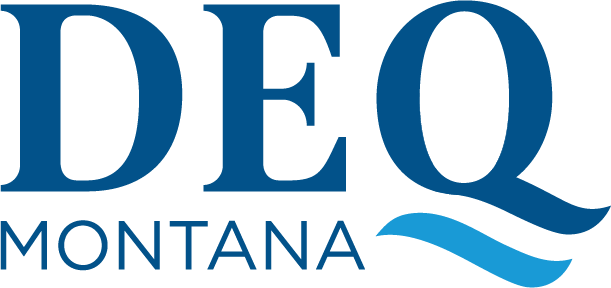DEQ Announces Approximately $1 Million in Available Grants for Water Quality Projects
HELENA—The Montana Department of Environmental Quality (DEQ) is seeking applications for approximately $1 million in funding for nonpoint source pollution reduction projects available under the Federal Clean Water Act. Nonpoint source pollution is the single largest cause of water quality impairment in Montana’s lakes and streams, and typically comes from sources spread out over a large area that are not regulated under a discharge permit.
Nonpoint source water pollution is often associated with land uses such as agriculture, forestry, urban and suburban development, and runoff from abandoned mine sites. Common pollutants include sediment, nutrients, pathogens and toxic metals. In lakes, streams and wetlands, these pollutants can cause serious harm to aquatic life and can make the water unsafe for human recreation and consumption. DEQ monitors water quality in Montana's lakes and streams and identifies water bodies that are impaired. This funding is one way that DEQ works to improve impaired waters across Montana.
This funding supports the implementation of locally developed watershed restoration plans. By working with local organizations, DEQ puts communities in the driver’s seat and leverages local knowledge to improve Montana’s lakes, rivers and streams. Nonprofit or government organizations can submit applications for proposed projects that help reduce nonpoint source pollution. Examples of past projects include cost share for septic maintenance, restoring wetlands and native vegetation along streambanks, or working with farmers and ranchers on water quality best management practices while protecting their property from flood and drought impacts.
In the last five years, DEQ has funded 45 projects. One recent project example is on Nevada Creek near Ovando. DEQ is currently funding phase five of restoration work on Nevada Creek with the Big Blackfoot Chapter of Trout Unlimited (BBCTU) to reduce sediment loading and improve floodplain connectivity, aquatic habitat complexity, and overall stream function impaired by historical practices. Nevada Creek is the largest tributary to the middle Blackfoot River and restoration will ensure the water flowing into it is cold, clean and connected. In collaboration with private, state and federal partners, BBCTU initiated a comprehensive restoration program aimed at addressing the causes and sources of water quality and aquatic life impairments in the Nevada Creek drainage. Since 2010, more than 24,400 feet of instream and riparian habitat have been restored. The river has already shown major reductions in sediment loads and there are increased fish in the stream. The project has also benefited ranching practices of landowners whose support and stewardship have been critical for these projects to succeed.
Water quality project funding applications are due in October. The recommended range for new funding applications is $10,000 to $250,000 per project, and 40 percent of the total project cost must be matched with non-federal funds. Approximately $500,000 of the available funding will be focused on projects in the lower Gallatin watershed. DEQ focuses funding on a specific watershed and rotates to a different watershed every two or three years. This targeted approach maximizes the cumulative impacts of water quality restoration projects within a watershed. The remaining $500,000 is open to projects across Montana. DEQ does prioritize some of the funding to administer mini-grant programs for low-cost nonpoint source pollution prevention activities and local capacity building.
The application form and instructions can be downloaded from DEQ’s website using the following hyperlinks:
- Call For Applications
- Application Form Instructions
- Application Form – General and Focus Watershed
- Application Form – Supplemental Project Form
- Application Form – Mini-Grant Programs
All projects must address nonpoint source pollution and implement a DEQ-accepted Watershed Restoration Plan. DEQ staff will be available, upon request, to provide feedback on project applications. The deadline for applications is 5 p.m., Friday, Oct. 7, 2022.
For more information on eligibility and to see current and recent applications, visit the DEQ website at: Nonpoint Source Program.
Tags: Water quality and Press Release
